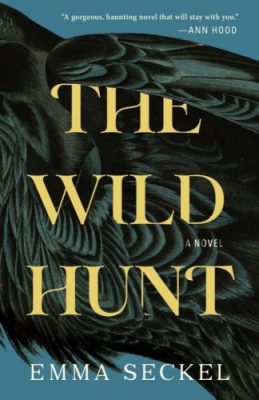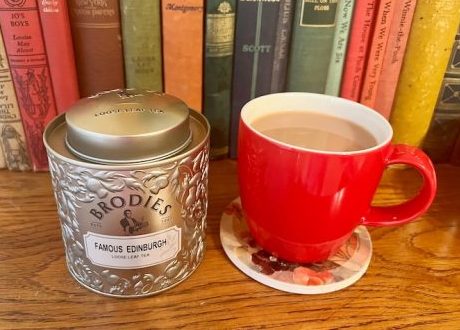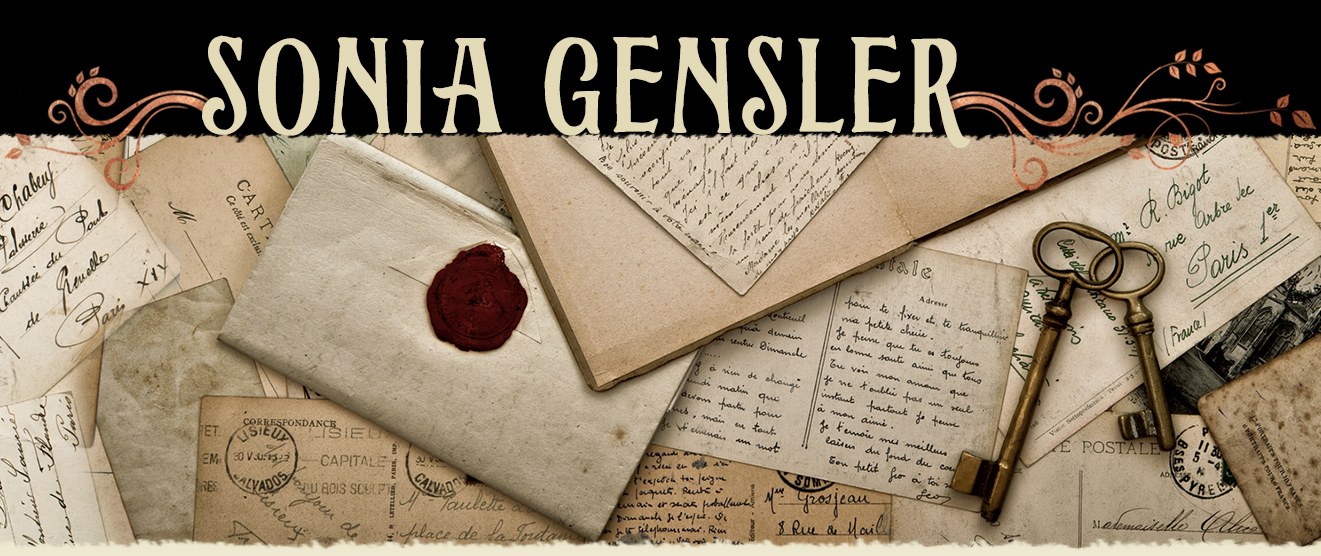
For July’s “Tea and a Book” I’m recommending The Wild Hunt, published in August 2022 by Tin House. Author Emma Seckel is a Canadian photographer and writer who has studied at St. Andrews and Cambridge. (No slouch, this one! Check out her website.) Seckel’s debut novel is set on a remote Scottish island and definitely has a folk horror vibe.
When Leigh Welles finds herself called home from the Scottish mainland by her father’s unexpected death, she is determined to forget the sorrows of the past and start fresh. Fellow islander Iain MacTavish, a RAF veteran with his eyes on the sky and his head in the past, is also in desperate need of a new beginning. A young widower, Iain struggles to return to the normal life he knew before the war.
But this October is anything but normal. This October, the sluagh are restless. The ominous, bird-like creatures of Celtic legend—whispered to carry the souls of the dead—have haunted the islanders for decades, but in the war’s wake, there are more wandering souls and more sluagh. When a local boy disappears, Leigh and Iain are thrown together to investigate the truth at the island’s dark heart and reveal hidden secrets of their own.
(note: I edited the synopsis for length. You’ll find the full version at Amazon and other vendors.)
An intriguing passage from The Wild Hunt:
This was what they did, dawn on the thirteenth. (“Thirteen,” Graham had told her once, “is a powerful number.”) Offering that cup of ale to the water spirit, Seonadh. A prayer for protection for the fishermen, for seaweed for the farmers to fertilise the fields. For the dead who rested beneath the waves. Leigh remembered the first time she had come to this ritual, as a small, yawning child. An ancient morning and her father had carried her up the stairs again, half-asleep and wrapped up in a blanket that now sat moth-eaten in the back of her closet. In the water Young Morrison raised the goblet to the sky and then tipped out its amber contents, letting the ale splash into the water. The sun began to peek its head over the horizon. Young Morrison waded back in from the water and proceeded up the beach, and one by one the islanders peeled off and followed him. Climbed the stairs up the bluff to the standing stones, where the bonfire was already waiting. And the others, in their white robes and the black masks with the long, curving beaks. Leigh paused for a minute until Mrs. Beech behind her gave her a little shove on the shoulder. The masks weren’t normally a part of the thirteenth, or at least they hadn’t been before. She had lived on this island for eighteen years, she had been gone for only four, and already she was a stranger.
My thoughts
I do love a post-war setting for a horror novel — the grief and lingering guilt add another layer to the horrifying elements. The ominous presence of the sluagh nudges this story into the category of folk horror, which pleased me greatly. My favorite aspect of the story is its setting — a remote Scottish island with a dwindling population and too many memories of grief and struggle. At times the narrative seemed to meander, but I’m glad I stayed with it because there’s an interesting payoff at the end. I will re-read this book, and I’m sure it will impress me even more the second time around.
Now for tea!

I really need to explore Scottish tea in more depth; so far I’ve only tried this black tea from Brodies. The Scottish Grocer describes it thus: “First blended in 1928 and named after Scotland’s historic capital – this is a light and refreshing Ceylon-based tea, with the Kenyan teas in the blend lending a bright edge to the cup. Delicious with a Scottish treat such as pancakes topped with heather honey.” I will say that the leaves look like tiny little pellets, so if you prefer a larger leaf for your tea, this might not work. I was afraid the brew might be overwhelmingly strong, so I steeped it for only three minutes. It was smooth and very tasty!



